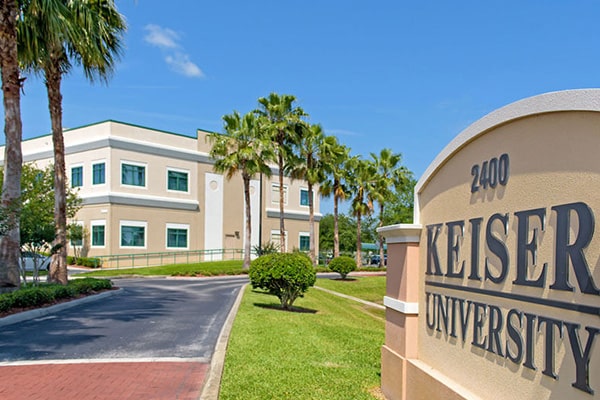Keiser University is well known for its commitment to quality education. Keiser University has been subject to questions many times about its tuition fees i.e. Why is Keiser University So Expensive? In this article, we will explore the various factors contributing to why Keiser University is so expensive, providing an in-depth analysis of the university’s strategies, quality of education and investments.
Short Introduction of Keiser University

Keiser University is a private institution with a focus on career-oriented education. It has gained a reputation for excellence. However, a recurring concern among prospective students and their families revolves around the perceived high cost of tuition. Let’s delve into the intricacies that contribute to Keiser University’s pricing strategy, When we go through every aspects of the university we found these are the main reason behind, Why is Keiser university so expensive ? Here are they
Top 13 Reasons behind Why is Keiser university so expensive

1. Accreditation and Quality Education
When we talk about accreditation, It plays a pivotal role in ensuring the quality of education. Keiser University’s commitment to maintaining high accreditation standards contributes significantly to its tuition fees. The rigorous evaluation processes and continuous improvement efforts add value to the education provided, justifying the associated costs.
2. Small Class Sizes and Personalized Attention
One of the distinctive features of Keiser University is its small class sizes. This deliberate choice aims to foster a more interactive and personalized learning environment. While this enhances the student experience, it does impact tuition fees as the university prioritizes quality over quantity.
3. Cutting-Edge Facilities and Technology
Keiser University prides itself on providing state-of-the-art facilities and incorporating the latest technology into its educational programs. This commitment requires substantial financial investments, contributing to the overall cost of education.
4. Experienced and Qualified Faculty
The caliber of faculty significantly influences the quality of education. Keiser University’s emphasis on hiring experienced and qualified faculty members reflects its commitment to providing students with an enriching learning experience. However, attracting and retaining such faculty members comes at a cost, impacting tuition fees.
5. Career Services and Alumni Success
Keiser University’s robust career services and impressive alumni success stories contribute to the institution’s reputation. These services, designed to enhance students’ post-graduation prospects, entail additional costs that are reflected in the tuition fees.
6. Specialized Programs and Resources
The university’s offering of specialized programs and the provision of dedicated resources for these programs contribute to the perception of high tuition. The investment in these unique offerings adds value but also incurs additional expenses.

7. Location and Campus Expenses
Geographical factors can significantly impact the cost of operating a university. Keiser University, with its multiple campuses, incurs expenses related to maintaining facilities, utilities, and other location-specific costs, all of which contribute to the overall tuition fees.
8. Financial Aid and Scholarships
While Keiser University strives to make education accessible, the availability of financial aid and scholarships also influences the cost of tuition. The institution invests in supporting students financially, and these costs are distributed across the student body.
9. Industry Partnerships and Networking Opportunities
Keiser University’s collaborations with industries and the opportunities it provides for networking are integral parts of its educational model. However, these partnerships and networking events come with associated costs that contribute to the overall expenses.
10. Competitive Educational Market
Comparing Keiser University’s tuition with that of other institutions reveals insights into the competitive nature of the educational market. Factors such as reputation, facilities, and program offerings influence Keiser University’s pricing strategy.
11. Student-to-Faculty Ratio
Maintaining a low student-to-faculty ratio is a deliberate choice by Keiser University to ensure individualized attention. While this benefits students, it does incur higher costs in terms of faculty salaries and resources.
12. Administrative and Operational Costs
Behind the scenes, administrative and operational costs play a crucial role in the functioning of any institution. Keiser University’s commitment to efficiency and quality administration contributes to its overall expenses.
13. Student Amenities and Services
Keiser University goes beyond academics, offering a range of amenities and services to enhance the overall student experience. These, however, contribute to the cost of attendance.
Conclusion
In conclusion, the perceived high cost of tuition at Keiser University is a result of a combination of factors. From accreditation and faculty quality to cutting-edge facilities and specialized programs, each element adds value to the education provided. It’s important to recognize the intricate balance between maintaining high standards and managing costs in the realm of private higher education.
Keiser University’s commitment to excellence comes at a price, but it’s a price that many students and alumni argue is justified by the quality of education and the subsequent career success they achieve. Hope you enjoy reading this article, Please visit Apnapurnea.com for more.
FAQs about Keiser University

1. Is Keiser University worth the high tuition?
2. Does Keiser University offer financial aid?
3. How do Keiser University’s tuition fees compare to other universities?
4. Are there scholarships available for Keiser University students?
5. What sets Keiser University apart from other universities?
Keiser University distinguishes itself through its commitment to personalized education, industry partnerships, and a focus on career-oriented programs. These factors contribute to a unique and enriching educational experience.

Pingback: Keiser University : A Comprehensive Guide to Programs, Athletics, Scholarships, and More